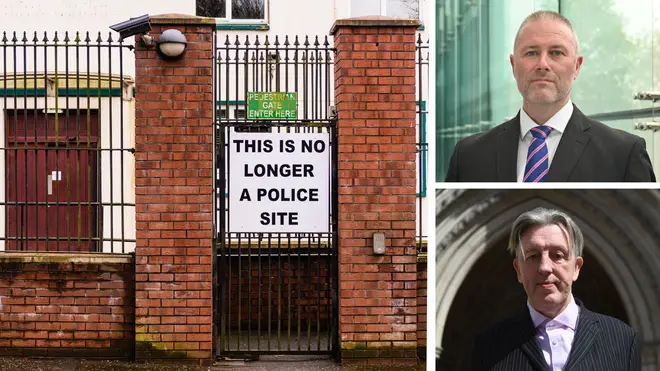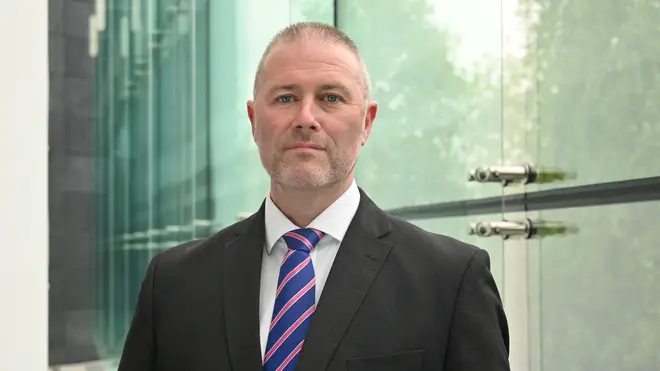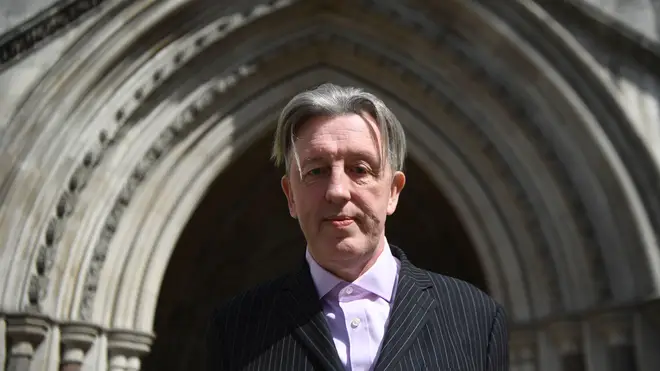
Shelagh Fogarty 1pm - 4pm
30 November 2022, 08:24 | Updated: 30 November 2022, 10:40

Police stations across the UK have been shutting their doors at a rate of more than one per week since 2010, an LBC analysis has revealed.
LBC submitted Freedom of Information requests to all 43 police forces in England and Wales and found that since 2010, a date synonymous with the election of the Coalition Government and the onset of the austerity-era cuts, at least 663 police stations in England, Wales and Scotland have closed.
Across England and Wales, this equates to approximately four-in-ten stations closing over this period.
Alarmingly, despite this sharp decrease in the number of police stations across the UK, the Home Office appears to be unaware of the scale of the issue.
When approached by LBC about the number of stations to have closed over this period, the Home Office admitted that it ‘does not centrally hold or collect the information requested’.
Yet LBC’s analysis casts an alarming picture about what’s happening at some of Britain’s biggest and most scrutinised police forces.
By way of example, the Metropolitan Police, the UK’s biggest police force, has seen the closure of over one hundred stations – around 75% of the total open in 2010.
Whilst some of these stations lay disused, others have been put to use by those with criminal intent; earlier this year, a large cannabis farm was uncovered at the Isle of Dogs Police Station on Manchester Road, a mere five months after its closure.
Read more: 'Call us to report corrupt cops', say Met Police bosses, after string of officer scandals

Meanwhile, West Midlands police, which covers an area with the country’s highest rate of knife crime per capita in 2020/21, has seen close to 80% of its stations with a public counter close, whilst 140 closures were disclosed by Police Scotland.
"It’s shocking to hear it’s that many," Steve Hartshorn, Chair of the Police Federation of England and Wales, told LBC.
"We’ve been aware that police stations have been closing at an alarming rate for a long time… You hear stories about serious crimes that have happened outside of police stations, and it does make you think 'could those crimes have been prevented had funding been provided by police authorities to keep them open?'"
Hartshorn’s question is far from academic.

In 2014, Paul Kohler was subjected to a vicious attack at his home, leaving him with injuries that meant he required reconstructive facial surgery.
Officers from his local police station were able to attend his within eight minutes, and Kohler credits their swift response with saving his life. He has campaigned to keep local stations ever since.
In an interview with LBC, Kohler said the Home Office’s inability to answer how many stations had closed since 2010 showed "how contemptuous they [the department] are of the issue".
"They just don’t seem to get it. They’ve got to fund the bricks and mortar for police to stay in the community. If police are miles away, they can’t get to issues, they’re not seen by the community. The whole notion of policing by consent involves police being there amongst the people."
Responding to LBC's investigation, a Home Office spokesperson said: "Our absolute priority is cutting crime and making our streets safer, and the Government is on track to deliver its pledge to recruit 20,000 police officers by March 2023.
"We are investing record funds into policing and giving officers the support, training and powers they need to crack down on crime.
"It is up to local elected Police and Crime Commissioners and Chief Constables to make decisions on local resourcing and estates, including police stations."